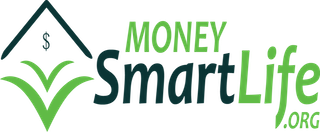Archives
May 2020
Categories
All
|
Back to Blog
COVID-19 Mortgage Forbearance4/6/2020 
COVID-19 is affecting many business collection practices. If your bank is anything like mine, you got an email notification that they were offering payment deferrals for mortgages and credit card customers. In this post, we're going to take a look at what deferred payments or a forbearance looks like in your mortgage account should you choose one and what are the pros and cons of a mortgage forbearance.
Forbearance is when you and your mortgage company agree to temporarily suspend or reduce your monthly mortgage payments for a specific period. This allows you to deal with short-term financial problems by giving you time to get back on your feet and bring your mortgage current. Keeping your word is paramount in this situation. Do not make commitments you can't keep. You may have to go back to your creditors for additional relief. Broken payment promises may make them less likely to provide help. You should contact your mortgage servicer to see what terms are offered. Doing so will help you better understand your options. It is always better to contact a creditor before you get behind on payments. You have to request and qualify for forbearance. If you have a federal loan (FHA, VA, USDA), your qualification is guaranteed during the COVID-19 pandemic. A forbearance allows you to maintain your cash as you navigate through a temporary crisis. Typically, the forbearance is for three months. You don't have to pay your mortgage during a forbearance. That deferred monthly payment becomes a cash cushion for you during this time. Understand a 'deferred payment' doesn't mean a 'never payment.' You will eventually have to make up any deferred payments. Please read the previous two sentences again. Deferred payments may accrue additional interest and extend the length of your mortgage, depending on the forbearance terms. If your monthly payment includes an escrow amount, that will also be deferred. That will create an escrow shortage. An escrow shortage will increase your monthly mortgage payment escrow amount the next time your servicer does an escrow reconciliation. Be aware and prepare for such an eventuality. Escrow shortages and reconciliation timing can create future monthly mortgage payment volatility. You can pay your escrow amount during the forbearance to prevent a deficiency. If you decide to do this, verify your partial payments are credited to your escrow balance. Before you agree to the forbearance, understand how it will report to the credit bureaus. Most lenders will not report your account to the credit bureaus during the forbearance, if you abide by the terms of the forbearance. The credit score impact of a late monthly mortgage payment can be devastating and long term. Most new credit scoring models more heavily weigh mortgage than other types of payments when calculating your payment history. Some newer credit scoring models treat late payments during a natural disaster less harshly. Surely the COVID-19 pandemic is a natural disaster. In times of financial uncertainty, cash on hand gives you options. A deferred payment doesn't increase your income. It lowers your outgo. During such times, reducing your monthly obligations is prudent. You can always pay your mortgage during or after the forbearance. Should you take a mortgage forbearance offered during the pandemic? For the vast majority of borrowers, that answer would be yes. A lot depends on where you are on the pandemic financial disaster scale. There are three benchmarks on the scale:
Regardless of your situation, your deferred payments are not for vacations, entertainment, clothes, and other things "you deserve or owe to yourself." Do not use debt to finance your wants. Wants are why you have savings accounts. Beware of "easy money." Don't get greedy and let a short-term decision lead to long-term financial turmoil. Here are two other considerations. First the less time you have left on your mortgage, the more impractical a forbearance. Since now, the majority of your payment is going toward extinguishing your principal and not interest. In such a situation, access forbearance in an extreme emergency only. Second, home equity line of credit (HELOC) loans are considered revolving accounts by most banks and generally don't offer traditional mortgage forbearance. Even though the loan is secured by your home. Most lenders will try to assist, if you need it. No one knows the final impact of the virus or how long the pandemic will last. Every family is sure to be buffeted by its economic turbulence. Society will respond in various ways. There are future financial decisions to be made. But for now, taking a mortgage forbearance makes sense for a lot of us.
0 Comments
Read More
Your comment will be posted after it is approved.
Leave a Reply. |
MONEYSMARTLIFE.ORG EMPOWERING SUSTAINABLE FINANCIAL WELL-BEING IN WORKING CLASS FAMILIES

 RSS Feed
RSS Feed

